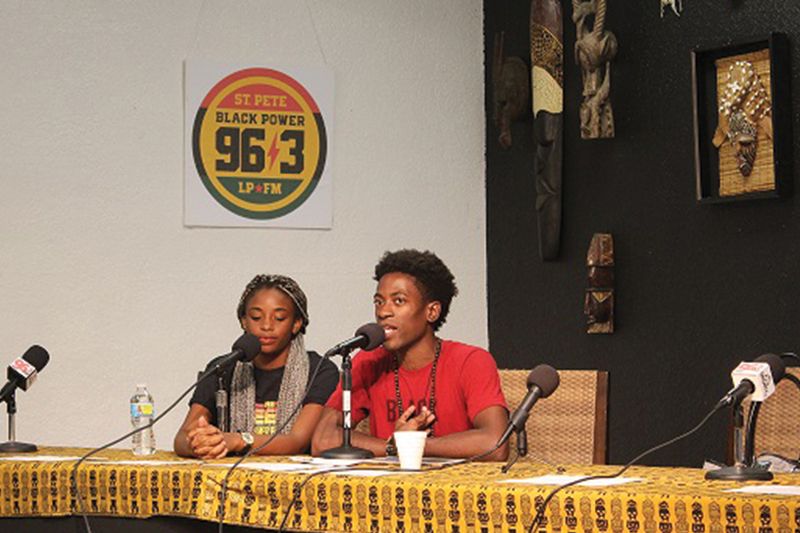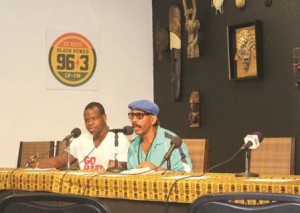Radio for the people


 On Sept. 20, Burning Spear Media hosted an event at the Uhuru House in St. Petersburg celebrating Black Power 96. The fundraiser included tours of the studio space, a live broadcast and a Karamu (African feast). As well, a special round-table discussion on the importance of independent black media was presented.
On Sept. 20, Burning Spear Media hosted an event at the Uhuru House in St. Petersburg celebrating Black Power 96. The fundraiser included tours of the studio space, a live broadcast and a Karamu (African feast). As well, a special round-table discussion on the importance of independent black media was presented.Notifications